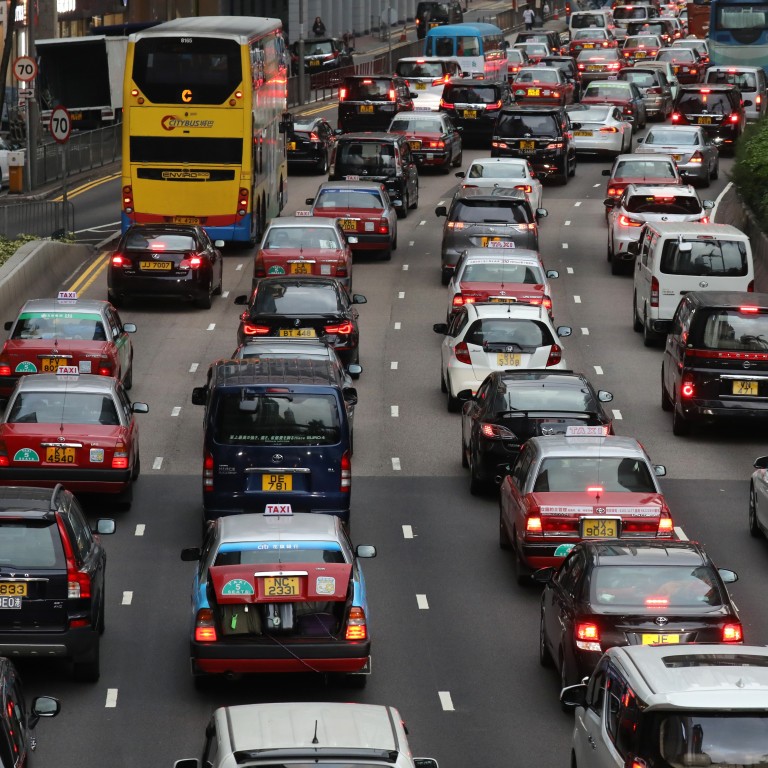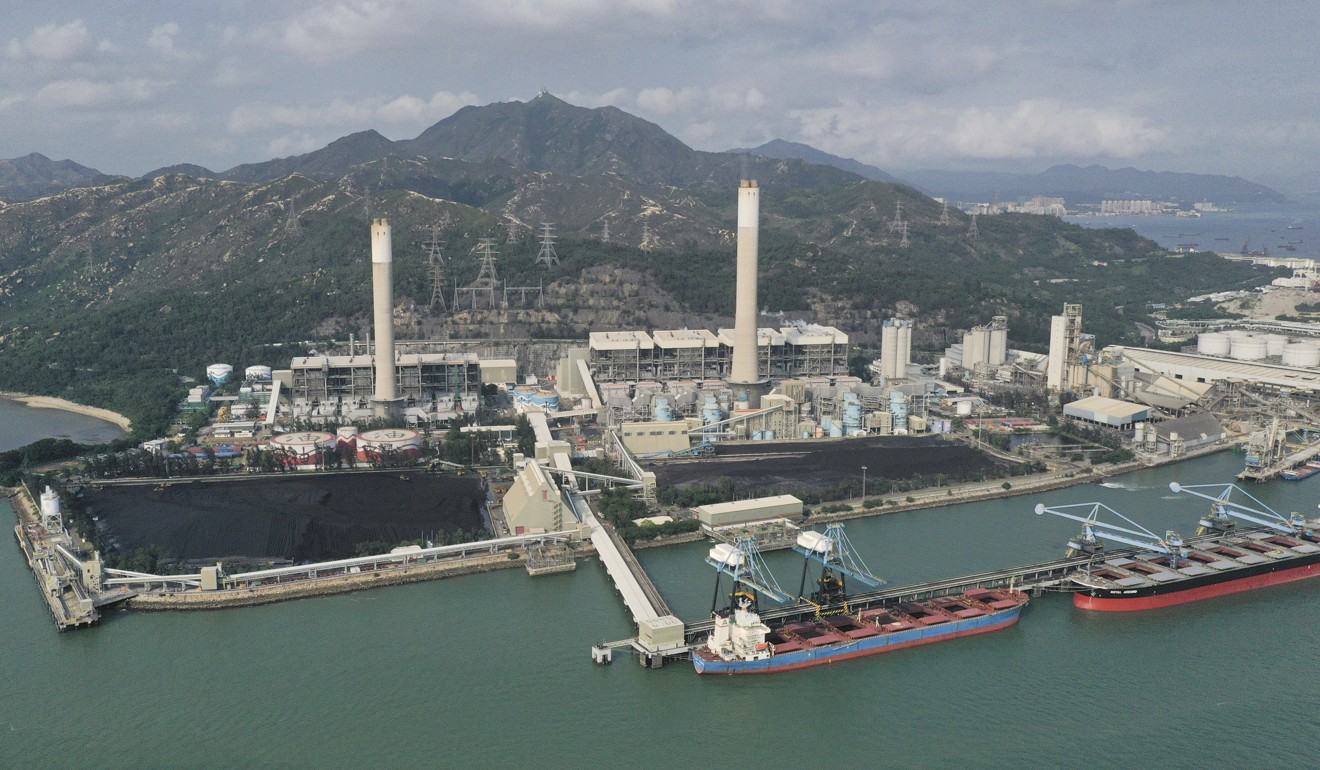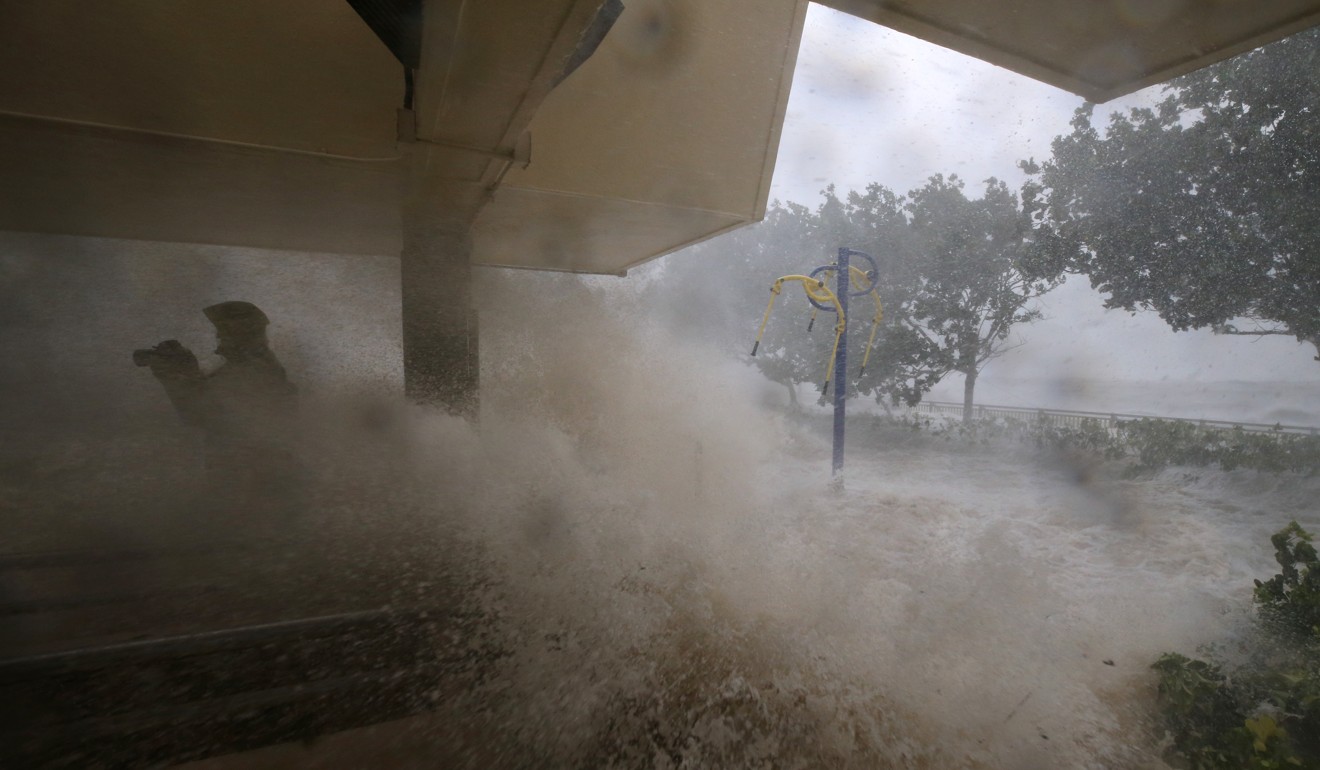
How far are Hongkongers willing to go to save planet from climate change? Consultation aims to find out
- Aim of three-month consultation is to draft strategy that will fulfil the city’s obligations under the Paris Agreement
- Public given wide range of lifestyle choices, and analysts will gauge the meaning of chosen low-carbon options
Hong Kong will have to ban all fossil fuel vehicles, switch off air conditioning and seek “very close energy regional cooperation” to achieve zero carbon emissions by 2050, according to a new paper set to engage the public in drafting a long-term strategy on the issue.
But do not fret – the consultation also gives less stringent choices that will still reduce carbon emissions by 60 or 80 per cent from 2005 levels.
Such reductions will mean annual carbon emissions per capita of 2 tonnes or 1 tonne respectively by 2050, compared with 5.7 tonnes in 2016.
“The key of the consultation is to make choices,” said former Hong Kong Observatory director Lam Chiu-ying, convener of the Support Group on Long-term Decarbonisation Strategy, which will help promote the exercise.

“It gauges how much citizens are willing to change their behaviours to save the Earth from climate change.”
Although the consultation paper, released on Friday, does not specify what it means by “energy regional cooperation”, the term is widely interpreted among scholars as buying electricity from mainland China.
The aim of the three-month consultation, steered by the Environment Bureau’s Council for Sustainable Development, is to draft a strategy that will fulfil the city’s obligations under the Paris Agreement, which aims to keep the global average temperature increase this century to within two degrees Celsius.
A more aggressive target to limit global warming to 1.5 degrees requires zero carbon emissions.
“We know climate change is coming. We know there is a crisis,” Li said. “Now we have to ask, what do we do?”
The council commissioned the University of Hong Kong to analyse data collected from the consultation and will draft its recommendations to the government based on the analysis.
A bureau spokesman earlier said a strategy would be submitted to mainland authorities, who would then put it forward to the United Nations.
According to the consultation paper, cutting carbon emissions by 60 per cent means 80 per cent of the city’s power would have to come from zero-carbon energy such as renewable energy and nuclear power. It also would necessitate “very close energy regional cooperation” and using fewer fossil fuel vehicles.
Extinction Rebellion takes root in Hong Kong to combat climate change
Achieving an 80 per cent reduction means even more green energy, replacing most fossil fuel vehicles and mandatory low-carbon building design and green procurement.
In the paper, however, the public is not asked to choose from different carbon emission reduction targets. Instead, they are given a wide range of low-carbon lifestyle choices, and the analysts will gauge what carbon reduction levels the choices mean.
For individuals, the choices are divided into different categories such as clothing, food, accommodation and commuting. Companies will choose from a separate set including categories such as procurement, energy efficiency and transport.
Electricity bills may go up because nuclear power is more costly. But who will pay the price is another question entirely, it may be supported by government subsidies or by consumers
Some options include eating more vegetables and less meat, avoiding buying plastic bottled drinks, buying fewer clothes and using natural ventilation or fans instead of air conditioners as much as possible.
Benoit Mayer, environmental law professor at Chinese University, said the only way to achieve “very close energy regional cooperation” would be to import electricity from the mainland, particularly nuclear power.
Climate change seen posing threat to global peace in next 10 years
“Electricity bills may go up because nuclear power is more costly. But who will pay the price is another question entirely – it may be supported by government subsidies or by consumers,” Mayer said.
“The price is worth paying because we know climate change is real and happening, it has catastrophic impacts if we do nothing.”
He said a broader energy mix may include more wind and solar power imported from across the border.

Greenpeace, however, slammed the consultation as a “pretext” to “pave the way for dangerous nuclear power” in Hong Kong, and demanded the government import more renewable energy from the mainland.
Frances Yeung, a senior campaigner at the environmental NGO, said: “Lowering carbon emissions through nuclear energy is like drinking poison to quench your thirst.
“If a major radiation leakage happens in a nuclear plant, it will severely pollute the environment and harm people’s health.”
The Earth will be the next Titanic, if corporate captains don’t wake up
Yeung added that the mainland’s solar and wind power-generating capacity would increase by threefold by 2035, according to the China Electricity Council.
“The government should have a greater vision, and aim to buy 100 per cent renewable energy from the mainland,” she said.
The Hong Kong chapter of Extinction Rebellion, the global climate change pressure group, said the government’s plans did not go far enough.

“Why are we waiting until 2050? Every year that passes before emissions get to zero increases the risk of triggering catastrophic tipping points in the climate system,” a spokesman said.
Citing the environmental and human consequences of inaction, the spokesman demanded the government declare a climate emergency and achieve net zero carbon emissions by 2025.
The city’s two power providers welcomed the launch of the exercise, and said they would submit their views to the government.
Washington, we have a problem, and it’s not China
“CLP Power has been optimising our fuel mix to ensure a safe and reliable electricity supply and at the same time to improve our environmental performance,” a spokeswoman said.
She added all sectors of the economy and people from all walks of life also had a role to play in reducing carbon emissions.
HK Electric said it was building three gas-fired units to gradually replace coal as the fuel for power generation, and commissioned the city’s first commercial-scale wind turbine in 2006 and one of the largest solar power systems in 2013.

